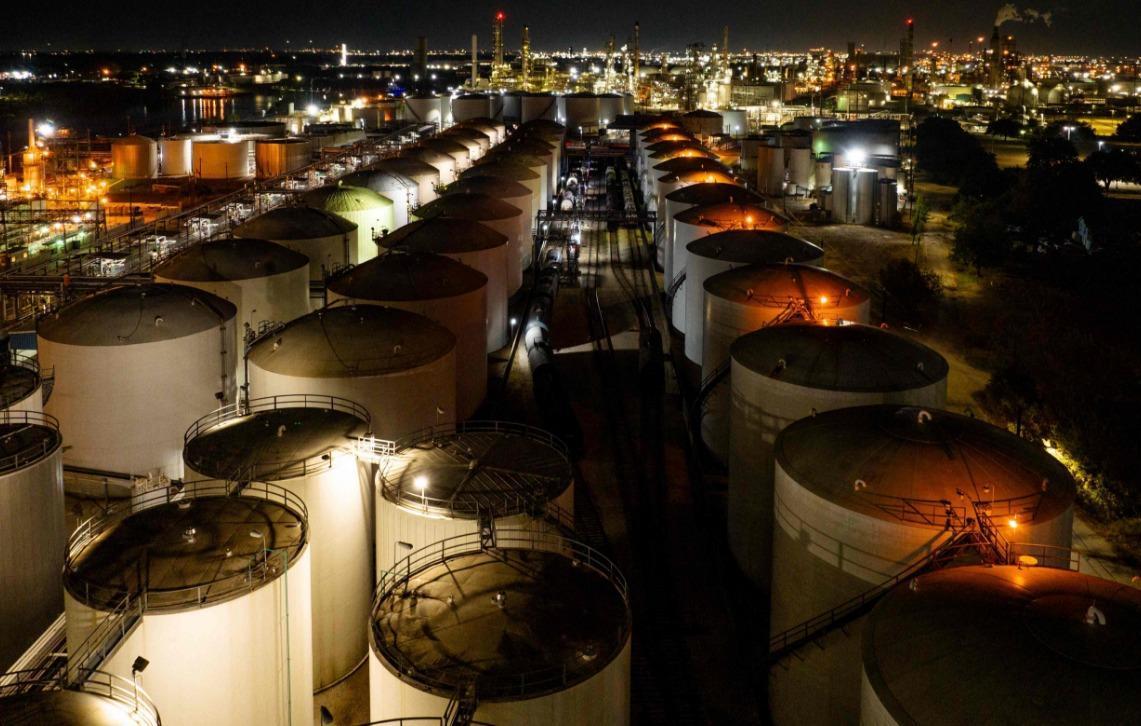Oil prices spike as Saudi Arabia, Russia extend cut
DUBAI

Saudi Arabia and Russia have agreed to extend their voluntary oil production cuts through the end of this year, trimming 1.3 million barrels of crude out of the global market and boosting energy prices.
The dual announcements from Riyadh and Moscow pushed benchmark Brent crude above $90 a barrel in trading yesterday, a price unseen in the market since November.
The countries’ moves could increase inflation and the cost for motorists at gasoline pumps. It also puts new pressure on Saudi Arabia’s relationship with the United States, as President Joe Biden last year warned the kingdom there would be unspecified “consequences” for partnering with Russia on cuts as Moscow wages war on Ukraine.
Saudi Arabia’s announcement, carried by the state-run Saudi Press Agency, said the country still would monitor the market and could take further action if necessary.
“This additional voluntary cut comes to reinforce the precautionary efforts made by OPEC+ countries with the aim of supporting the stability and balance of oil markets,” the Saudi Press Agency report said, citing an unnamed Energy Ministry official.
State-run Russian news agency Tass quoted Alexander Novak, Russia’s deputy prime minister and former energy minister, as saying Moscow would continue its 300,000 barrel a day cut.
The decision “is aimed at strengthening the precautionary measures taken by OPEC+ countries in order to maintain stability and balance of oil markets,” Novak said.
White House national security adviser Jake Sullivan declined to comment on the market impact of the decision, though he said U.S. officials had regular contact with the kingdom. He added that Biden would look to utilize “everything within his toolkit” to assist American consumers.
“The thing that we ultimately stand for is a stable, effective supply of energy to global markets, so that we can in fact deliver relief to consumers at the pump, and we do this in a way that is consistent with the energy transition over time,” Sullivan said.
Bob McNally, the founder and president of the Washington-based Rapidan Energy Group and a former White House energy adviser, said Saudi Arabia and Russia had “demonstrated their unity and resolve to proactively manage” the risk of oil prices potentially dropping in tougher economic conditions with their announcement.
“Barring a sharp economic downturn, these supply cuts will drive deep deficits into global oil balances and should propel crude oil prices well above $90 per barrel,” McNally said.
The average gallon of regular unleaded gasoline in the U.S. stands at $3.81, according to AAA, just under the all-time high for Labor Day of $3.83 in 2012. However, gasoline demand typically drops for U.S. motorists after the holiday so it remains unclear what immediate effect this could have on the American market, AAA spokesman Andrew Gross said.
“I’m more concerned about what the rest of hurricane season may hold,” Gross told The Associated Press. “A big storm along the Gulf coast could move prices dramatically here.”
















